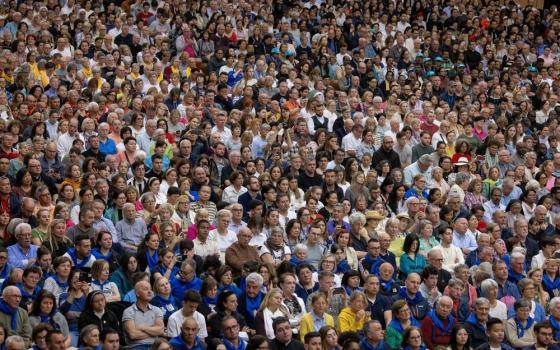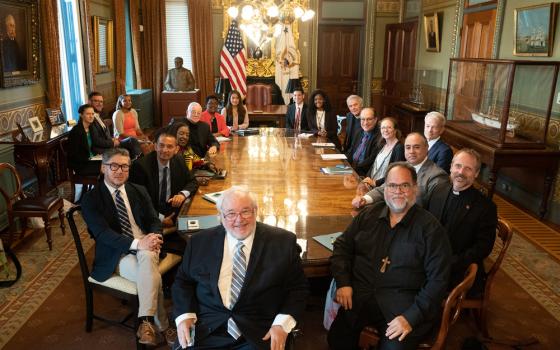Editor's note: Meeting Rwandan President Paul Kagame, Pope Francis asked God's forgiveness for the failures of the Catholic Church during the 1994 Rwanda genocide and for the hatred and violence perpetrated by some priests and religious. In a statement read in churches throughout Rwanda Nov. 20, the country's bishops apologized for "all the wrongs the church committed" during the genocide. Global Sisters Report correspondent Melanie Lidman just returned from a trip to Rwanda and has these thoughts to add:
Government officials claimed that not all dioceses read the Nov. 20 message, especially dioceses that are majority Hutu. The government also said the church's statement "appear[s] to take the extraordinary step of exonerating the Catholic Church as a whole for any culpability in connection with the Genocide," and expressed anger that, at the time, the Vatican did not make any statements about the genocide.
In Rwanda, activists believe that the church has an important part to play in reconciliation. "[These] institutions have a big role to play because they're the ones who have access to people," explained Honore Gatera, the director of the Kigali Genocide Memorial Museum, at an event commemorating International Holocaust Day in February. Representatives of the Vatican also attended the memorial.
Related: Raised by sisters, a Rwandan orphan looks to the future (March 20, 2017)
"Churches tend to have been with the perpetrators, and yet, they have also been contributing to the process of rebuilding the nation," said Gatera. "We know they have access to people, having that access means you can be key to teach them."
Gatera and many others believe that the key towards reconciliation is education, and the Kigali Memorial Museum has designed curriculums that are taught in all second grade classrooms dealing with issues of peacemaking and dialogue, including all Catholic schools.
"[The church has] a huge responsibility," Gatera continued. "They must be involved in commemoration and memorialization events and activities, but most importantly, they must be part of the education journey that we have started."






